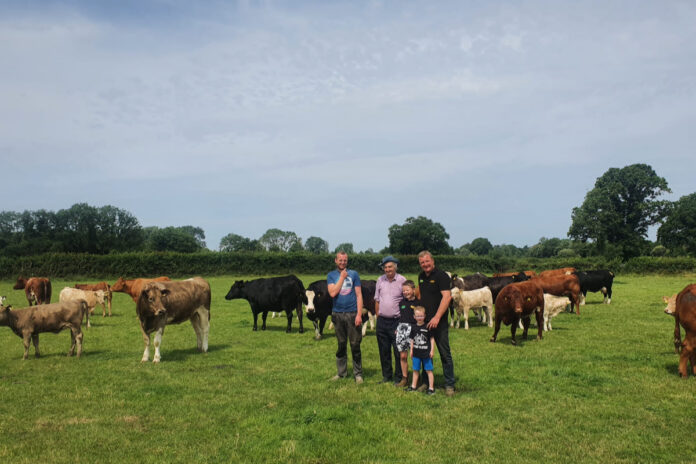That’s Farming editor, Catherina Cunnane, in conversation with Johnny Bracken in this week’s Suckler Focus segment. We discuss a family farming tradition, farming 25 commercial sucklers, working off-farm and raising a family.
“I am Johnny Bracken from Portnahinch, Portarlington, Co Laois and we – my father, John, brother, Bob and I – are suckler farmers.
Our family has been farming for three generations. My grandparents were dairy farmers with 20 cows in their herd.
I am a part-time farmer as I work full-time manufacturing livestock trailers.
I loved farming from a young age and always had a huge interest in the farm. My grandparents and father have been huge influences.
Farming was something I was born into and grew up with. I enjoyed it as a child and spent a lot of time with my grandparents working the farmland alongside my father.
Moreover, I believe it is a great way to bring up a family and while there is not a huge amount of money to be made in farming unless you love farming and do it on a full-time basis.
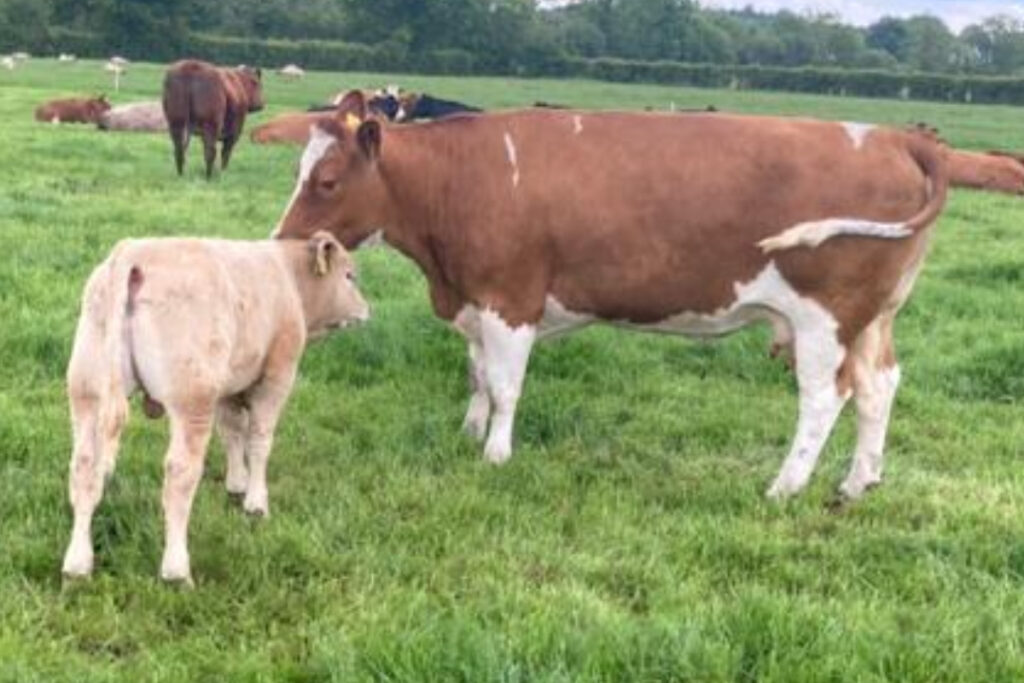
Laois suckler farmers
Back eight years ago, my father decided to divide the farm between Bob and I.
Between my brother and I, we have 55 suckler cows in total. I have 25, my brother has 30, and the farm is 125-acres in size.
We run Limousin-cross and Simmental-cross dairy-influenced breeding females with a Charolais bull to attain a top price.
We were lucky the River Barrow divided the farm, leaving one block in Laois where I farm 45-acres.
The other is in Offaly, where Bob farms. We manage the farm in two separate herds but share the machinery, which leaves finances very simple at the end of the year.
It also works well as we can keep better quality machinery as we split costs between the two of us.
I farm 25 cows and 40 breeding ewes. I sell all progeny – bull and heifer calves – at 10 months of age to a local beef producer, at an average weight of about 400kgs.
My target is 400kg at 10 months at an average price of €2.40/kg.
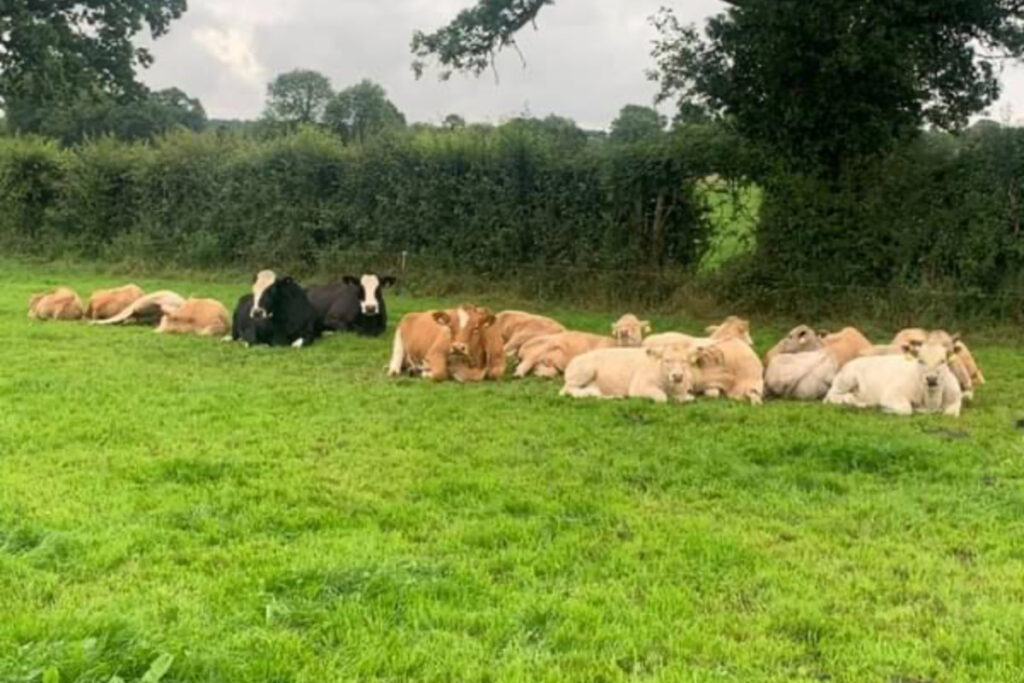
Calving and lambing
We calve from the first week of February to the first week of April. We do not like to calf after this as we are busier and they do not get the attention they need.
Moreover, we cull anything that is not in-calf within an eight-week period.
We keep them to 2-years-old for calving as it is too expensive to keep them to 3 years before calving.
On the other hand, we lamb from January 1st each year and send all subsequent lambs to Kildare Chilling at 14 weeks.
We find this works well as it keeps our field and grass in production 11 months of the year, which, in turn, helps to keep up the profit on the farm.
My brother, Bob, farms 30 cows and rears 50 calves every year and also worked for a dairy farmer.
Cows are grazed and moved every three days in a paddock system with reseeding every five years on 8-10-acres.
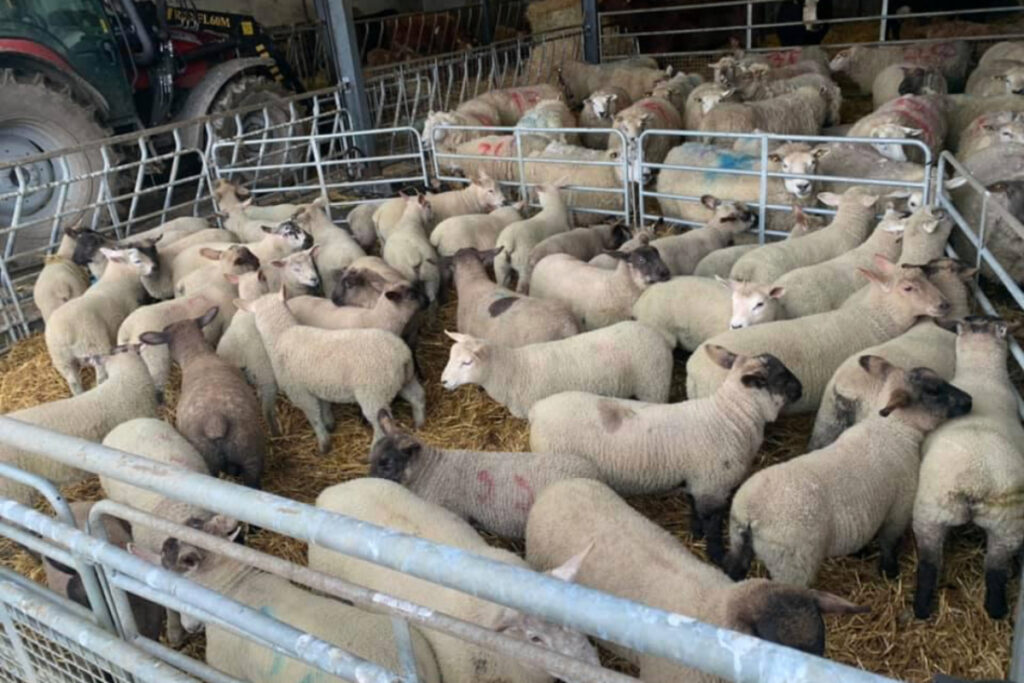
Flexibility for work and family life
Suckler farming offers flexibility for work and family life. Unlike a typical 9-5 job, farming is a family business, and my three children help in all aspects of the farm. This gives me more time to spend with the children and tend to the farm.
Future planning for our farm is very difficult. Every year, we are hit with uncertainty in price.
I think that suckler farming needs to be respected a bit more and not talked down. It is a good way of life and a great way of bringing up a family. We manage the farm together and also earn extra income.
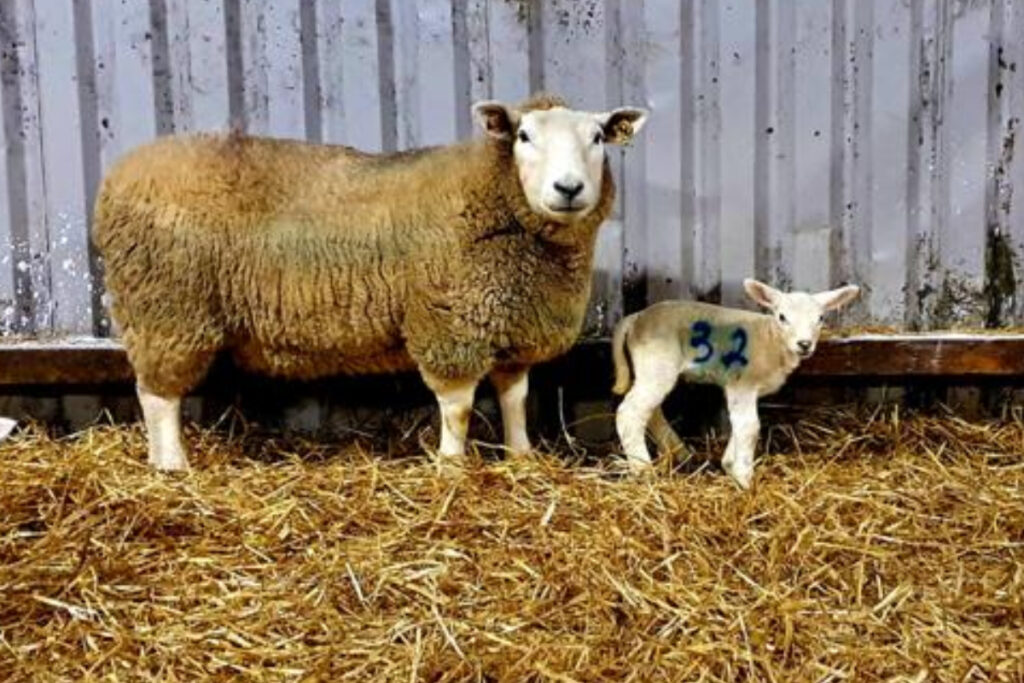
World-renowned beef
I feel the herd size I have is ideal for part-time farming. As I said, I also have a full-time job manufacturing livestock and bale trailers in my company, Bracken Enterprise.
I believe there is a positive outlook for suckler farming in Ireland as our beef is a world-recognised product we produce. We are doing something right to see Irish beef being advertised on foreign means.
I think, no matter what industry you ask if farmers are rewarded enough for their quality progeny, the answer you will get to this question is no.
From a farmer’s perspective, the hours of work that goes into raising 1 calf, let alone 25 calves, for the price they fetch at the mart, there is little reward, in my opinion.
Farmers do not get to clock off when their shift is done; it is a 24/7 job.
I think beef farmers need to see how the dairy system works. I feel that farming is a great way to raise a family, but farmers are being taken advantage of.”
To share your story like these Laois suckler farmers, email – [email protected]
See more suckler farming profiles.


